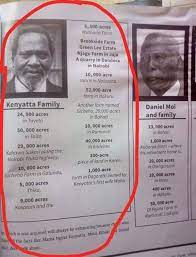A rifle successively exploded; the deafening cracking split through the quiet dawn in the fort of Lumboka. The Western side had been breached. Two well-aimed shots went through the heart of one warrior manning the fort. For few moments, there fell strange silence. The stricken son of soil courageously fell on his knees holding onto his spear, succumbing to the mighty force drifting into eternal darkness.
A deep wail followed... “The enemy approaches!!” ... it was war time!! Warriors took their position. Wakoli tucking his beloved rifle and lichabe (elder’s robe) emerged from wamwalo (ante-room) making way for the battleground. “Let’s get this done already!!” He shouted his fellow tribesmen.
Little did Wakoli’s military intelligence think of a more sober reinforcement. Sir Fredrick Jackson had deployed 150 Sudanese soldiers and 900 volunteer fighters from Buganda Kingdom. Alongside, there was 200 Wakwabi (Uasin Gishu Masai) and other warriors from the fort of Mumia in Wanga. Wakoli wenyokhela kumukhono kumukhasi (Loosely translated as Wakoli had that day woken with the unlucky hand).
That aside, Wakoli peeping through sibili (hole in the fort) realized that among the first attackers were Okwara (his shooting trainer) and Namisi (formerly head of Swahili home). Tables had turned; a student up against the teacher... the hunter, turned the hunted. Bullets rained, spears zoomed. Death smelled in the air. Using Lyambila (Omuyaya by clan) as a human shelter, Wakoli through the V-space between his arms took down Namisi slicing through his hipbone. Seconds later, he aimed and got Okwara-wa-Tindi in the ankle. There and then, the over-sharpened machetes of Bukusu warriors cut Okwara into pieces.
Wakoli’s slaughter of former allies-turned-invaders later earned him praise. It boiled into lyrics of a war song: Okhwa Mukisu khamupa engeche Okwara-wa-Tindi (Son of Mukisu hit Okwara in the ankle).
The war was fiercer than expected. The sons of the soil fought bravely under the command of Wakoli. The rays of the lazily rising sun found the fort in great commotion. Cries, screams, heat, blood and exhaustion ruled the day. Many fell. Both sides lost. Half of the forces of the colonial side were felled. On the other hand, Bukusu lost 400 men. Cattle, crops, and households were leveled. There was great pain; the Thigh of the Elephant had been greatly wounded. The mighty Lumboka had fallen!
Much had been added to history. From Wangusi fort, then Bokoli fort and now the Lumboka fort, War became a hard subject to talk about. It awakened bitter memories; sons and daughters of the land lost lives fighting for their freedom; for their resources.
Do not be quick to underestimate the resilience of the Bukusu. The community later regrouped at Mwikhupo lya Chetambe (Chetambe Falls), constructing a fort under the leadership of Chetambe (an Omuyumbu by clan). Later narrations may touch on another bold resistance at Chetambe, a phenomenal event in Bukusu history. The Chetambe ordeal led to signifying of peace treaty including Wandabwa (Son of iconic Namunyulubunda), Sudi Namachanja (Omukhone) and Majors Grant and Hobley.
In the wake of chilling war stories, some Bukusu communities moved up to Silikwa, Bokoli, Teremi, Mautuma, Nalondo, Kamukuywa, Ndivisi, Surungai, Kiminini and Siboti among other areas deemed safer.
Failure at Fort of Lumboka is related to among others: Bukusu underestimating the enemy, failure to employ guerrilla warfare, collaboration of allies and use of outdated weaponry. Even the military maneuvers of the Whiteman were proven nightmare to black fighters.
Lumboka is remembered a power of military strength. Wakoli survived the war; considered a pioneer nationalist spreading seeds of modern nationalism. He lived up until seventeen years after the battle; breathing last in 1912. He was succeeded with many children from his 45 wives. Among the favorite wife was Mumia (of Bakipemuli clan) who gave him Agatoni Makanda (1904), Pascal Nabwana (1900) and Timothy Makila (1910).
To Siundu, the eldest son, Wakoli gave him the precious gun (later confiscated by colonialists in 1955). Siundu (Omukolongo Khaoya -1910) was named sub chief under Namachanja administration and latter succeed by Muhila his son.
Pascal Nabwana who later made Lukoba in Kimilili remained a renowned political personality. Wakoli handed down to Nabwana ekutusi, ekhorere and lichabe as important traditional leadership souvenirs. Nabwana was even accorded an OBE (Officer of the Most Excellent Order of the British Empire) in 1959 by the Queen of England due to outstanding political career in Western Province.
As we reflect on the Bukusu history, we give tribute to Wakoli and exemplary soldiers who believed in a larger cause. Today we see them as fallen heroes who stood up when the community needed them. Through their actions, they took part in wider efforts towards liberation. From them we draw inspiration; we celebrate them!
A story is good, until another one is told...










Comments